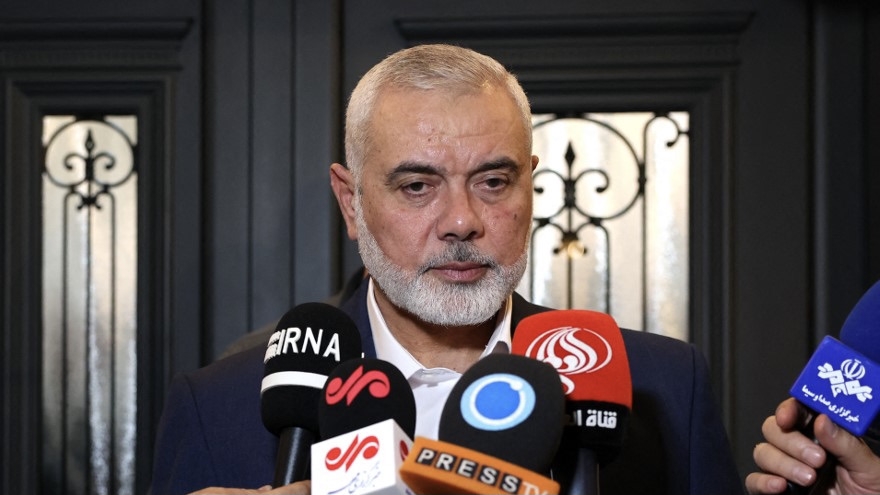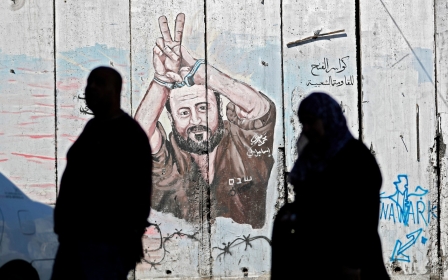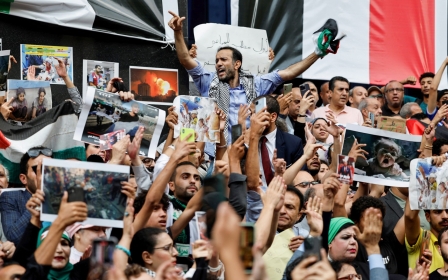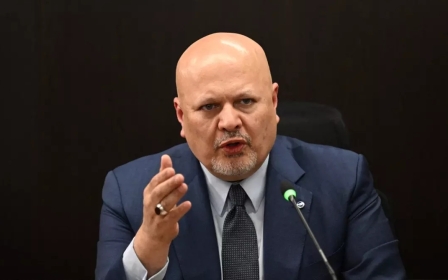Hopes for Gaza ceasefire appear slim amid Cairo talks

Prospects for a Gaza ceasefire appeared slim on Sunday as Hamas reiterated its demand for an end to the war in exchange for the freeing of hostages, and Israeli Prime Minister Benjamin Netanyahu flatly ruled that out.
The two sides blamed each other for the impasse and the Hamas delegation said it would leave Cairo truce talks on Sunday night to consult with its leadership. However, the Hamas officials planned to return to the Egyptian capital on Tuesday, two Egyptian security sources said.
In their second day of talks with Egyptian and Qatari mediators, Hamas negotiators maintained their stance that any truce agreement must end the war, Palestinian officials said.
Israeli officials have not travelled to Cairo to take part in indirect diplomacy, but on Sunday Netanyahu reiterated Israel's aim since the start of the war nearly seven months ago: to disarm and dismantle the Palestinian Islamist movement Hamas for good or else endanger Israel's future security.
The prime minister said Israel was willing to pause fighting in Gaza in order to secure the release of hostages still being held by Hamas, believed to number more than 130.
"But while Israel has shown willingness, Hamas remains entrenched in its extreme positions, first among them the demand to remove all our forces from the Gaza Strip, end the war, and leave Hamas in power," Netanyahu said.
"Israel cannot accept that."
Indicating that this round of talks may soon unwind, a Palestinian official close to the mediation effort told Reuters on Sunday: "If Netanyahu doesn't change his mind, there will be no reason to stay. They can always reconvene if that changes."
"The latest round of mediation in Cairo is near to collapse," one official briefed on the talks told Reuters.
'Sabotage'
Israeli Defence Minister Yoav Gallant said that Hamas seemed not to be serious about reaching a truce.
"We are observing worrying signs that Hamas does not intend to reach an agreement with us," Gallant said. "This means strong military action in Rafah will begin in the very near future, and in the rest of the Strip."
Follow Middle East Eye's live coverage of the Israel-Palestine war
In a statement released shortly after Netanyahu's, Hamas chief Ismail Haniyeh said the group was still keen on reaching a comprehensive ceasefire that ends the Israeli "aggression", guarantees Israel's withdrawal from Gaza, and achieves "a serious" deal to free Israelis being held hostage in exchange for the release of Palestinian prisoners.
Haniyeh blamed Netanyahu for "the continuation of the aggression and the expansion of the circle of conflict, and sabotaging the efforts made through the mediators and various parties".
In a separate statement, Hamas insisted it maintained a "positive and responsible approach" towards the negotiations and said it was determined to reach an agreement.
The statement mentioned that Hamas's key demands include "a complete end" to the fighting, Israeli withdrawal "from the entire Gaza Strip, the facilitation of the return of displaced people, the intensification of relief efforts, the start of reconstruction and the conclusion of a prisoner exchange deal".
Qatar, where Hamas has a political office, and Egypt are trying to mediate a follow-up to a brief November ceasefire, amid international dismay over the soaring death toll in Gaza and the plight of its 2.3 million inhabitants.
CIA Director William Burns - who had been in Cairo - is travelling to Doha to hold an emergency meeting with Qatar's prime minister, an official briefed on the talks said late on Sunday.
"Burns is on his way to Doha for an emergency meeting with the Qatari Prime Minister aimed at exerting maximum pressure on Israel and Hamas to continue negotiating," the source added.
Washington - which, like other western powers and Israel, brands Hamas a terrorist group - has urged it to enter a deal.
Israel has given a preliminary nod to terms that one source said included the return of between 20 and 33 hostages in exchange for the release of hundreds of Palestinian prisoners and a truce of several weeks.
That would leave around 100 hostages in Gaza, some of whom Israel says have died in captivity.
The source, who asked not to be identified by name or nationality, told Reuters their return may require an additional deal.
Middle East Eye propose une couverture et une analyse indépendantes et incomparables du Moyen-Orient, de l’Afrique du Nord et d’autres régions du monde. Pour en savoir plus sur la reprise de ce contenu et les frais qui s’appliquent, veuillez remplir ce formulaire [en anglais]. Pour en savoir plus sur MEE, cliquez ici [en anglais].





